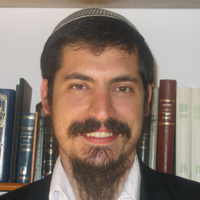Beit Midrash
- Torah Portion and Tanach
- Vayikra
- Vayikra
Vayikra, of course, starts the discussion of the korbanot; one of the most predominant – yet perplexing – Mitzvot of the Torah. Few, if any of us, can relate to the offerings, or understand their deeper meaning. But let us try!
Let’s start with a question: Why does the Torah begin the subject of korbanot by saying "ADAM ki yakriv korban…. When a MAN shall offer a korban…." but at the same time tells us, "V’im NEFESH techeta – When a SOUL
shall sin…?" Why not stay consistent?
The reason is clear: A person sins because something inside him – his soul, let’s call it – compels him to do so. Moreover, it is the nefesh which then becomes tarnished (or blemished), and at the end of his days, it is primarily the soul which will need a tikun, a rectification.
But the soul is immobile, incapable of action. It is only "Adam," mortal, physical man – the soul’s vehicle for movement – which has the power to act. So the pasuk tells us that while it is the soul which sins, it is Man that must act to atone for that sin, and remove the blemish upon the soul.
Bringing a Korban was the "action plan" for penitence. A person had to select an animal, spend money to purchase it and then physically bring it to the Bet HaMikdash, to the Kohen, to offer it. He then had to lay his hands upon it and verbally confess his sin. All in all, he uses his eyes, his hands, his legs and his mouth. Teshuva, in short, requires concrete acts.
So, too, our deliverance on Pesach was the result of our acting, in tandem with Hashem’s will. We had to select a lamb, go and tie it to our bedposts, slaughter it and then place the blood on our door posts. We had to undergo Brit Mila, and then we had to leave Egypt when Moshe told us to leave. At crucial times in our lives, Man must act, and only then will Hashem react.
On many occasions, well-meaning people will tell me, "Rabbi, I know I’m not very active, Jewishly-speaking. But in my heart, I consider myself to be a very good Jew."
I tell these people, "You have what we call in Judaism, ‘a heart condition!’ What you are feeling is a soul literally dying to get out. For that to happen, you must act: Reach into your pocket to give Tzedaka; move your lips to pray; let your legs carry you to shul or the Bet Midrash; sit and study." Even the word, "Halacha" comes from the root, "to move."
You want to liberate your soul, to get your neshama in good shape? The only answer is Spiritual Calisthenics.






















